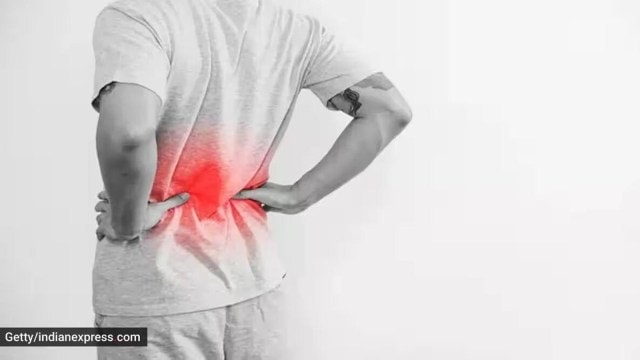📣 For more lifestyle news, click here to join our WhatsApp Channel and also follow us on Instagram
4 habits that could be slowing your back pain recovery: ‘What you eat can delay or speed up your healing’
An orthopaedic surgeon recently shared an Instagram reel highlighting four diet and lifestyle choices that could be preventing your back from healing
 Orthopaedic surgeon Dr Obaidur Rahman explains 4 habits that delay back pain recovery (Source: Getty Images/Thinkstock)
Orthopaedic surgeon Dr Obaidur Rahman explains 4 habits that delay back pain recovery (Source: Getty Images/Thinkstock)Back pain is one of the most common health complaints, but what if your habits are quietly making it worse? Dr Obaidur Rahman, content creator and orthopaedic surgeon (MBBS, MS), recently shared an Instagram reel highlighting four diet and lifestyle choices that could be preventing your back from healing — especially if you’re dealing with disc-related pain.
“Back pain isn’t just mechanical — it’s metabolic too. What you eat can delay or speed up your healing,” he wrote in the caption, adding, “Your back pain won’t go away if you keep these habits.” He listed excess sugar or tea with sugar, fried and processed foods, a low-protein diet, and excessive bed rest as the main culprits.
According to him, sugar and processed foods cause inflammation near the disc, while a protein-deficient diet deprives the disc of nutrition during recovery. Excessive rest, too, lowers nutrient delivery to the disc by reducing movement. But are these claims accurate? We asked an expert to break them down.
Is there scientific evidence linking excessive sugar and processed foods directly to worsened back pain or delayed disc recovery?
Dr (Prof) Raju Vaishya, senior consultant orthopaedic and joint replacement surgeon at Indraprastha Apollo Hospitals, New Delhi, tells indianexpress.com, “There is scientific evidence connecting high intake of added sugars, including sugary tea, and processed or fried foods to increased inflammation in the body. Studies show that excessive sugar consumption leads to the production of inflammatory molecules (such as cytokines and AGEs), which can contribute to chronic pain and worsen conditions like back pain, especially in areas with less blood circulation, such as the spinal discs.”
View this post on Instagram
Similarly, he notes that frequent consumption of fried and processed foods is associated with higher levels of inflammation due to toxins like AGEs (Advanced Glycation End-products), which not only impact overall health but can also impair the body’s ability to recover from injuries, including disc issues. “However, while these foods worsen inflammation (and thus potentially slow healing), direct, controlled studies specifically linking these dietary habits to delayed disc recovery are limited, though the biological plausibility is well supported,” states the doctor.
How do low-protein diets and excessive bed rest affect disc health and recovery?
Dr Raju mentions, “A low-protein diet deprives spinal discs and surrounding musculature of the amino acids needed for repair and regeneration. Research demonstrates that people with low protein intake have a higher risk of developing low back pain, and protein supplementation can improve muscle health and reduce pain following spinal injury or surgery.”
Excessive bed rest, on the other hand, can weaken the spinal muscles (muscle atrophy), raise intradiscal pressure, and alter spinal biomechanics. “Prolonged inactivity also reduces the flow of nutrients to discs, triggering or accelerating degeneration, and slows down recovery from back pain. A balance of movement is essential,” he notes.
Additional robust solutions for back pain
Here are some steps one can take to reduce back pain, as suggested by Dr Vaishya:
- Regular physical activity: Low-impact exercises such as walking, swimming, yoga, and core strengthening have been shown to alleviate and prevent chronic back pain.
- Stretching and posture correction: Keeping muscles flexible and maintaining good posture can significantly reduce pain incidents.
- Physical therapy and manual therapies: Guided rehabilitation, massage, and targeted physiotherapy may accelerate recovery and help manage chronic pain.
- Pain management through non-drug means: Methods such as heat/cold packs, acupuncture, and electrical stimulation can provide relief.
- Nutritional support: In addition to reducing sugar and processed food intake, a balanced diet rich in protein, vitamins (especially D and calcium), and anti-inflammatory foods (fruits, vegetables, good fats) is beneficial.
DISCLAIMER: This article is based on information from the public domain and/or the experts we spoke to. Always consult your health practitioner before starting any routine.
📣 For more lifestyle news, click here to join our WhatsApp Channel and also follow us on Instagram


- 01
- 02
- 03
- 04
- 05
























